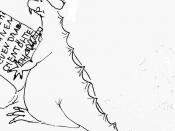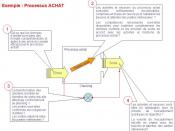Total Quality Management is a comprehensive and structured management methodology that is a quality-centered, customer-focused, fact-based, team-driven, senior-management led process to achieve an organization's strategic imperative through continuous process improvement. Total Quality Management (TQM) is not a program, but rather a systematic, integrated, organizational way-of-life that requires quality in all aspects of the company's operations, directed towards doing things right the first time and eradicating defects and waste from operations. In addition to the definition of Total Quality Management, this paper will discuss the impact of globalization in quality, the difference between TQM and other management styles, and explain how TQM applies, or should apply, to Ratner Companies.
Dr. W. Edward Deming developed Total Quality Management in the mid 1940s. At the time, Dr. Deming was an advisor in sampling at the Bureau of Census and later became a professor of statistics at the New York University Graduate School of Business Administration.
Dr. Deming outlined fourteen points of quality management. These fourteen points for quality management are the foundation of Total Quality Management and guide the entire TQM process. According to Deming, these fourteen points are the cure for what he calls the five deadly diseases that can destroy an organization. He had little success convincing American businesses to adopt TQM but his management methods did gain success in Japan (tkdtutor.com). In the 1970s and 1980s, many American companies, including Ford, IBM, and Xerox, began adopting Dr Deming's principles of Total Quality Management. This gradually led to their regaining some of the markets previously lost to the Japanese (tkdtutor.com).
Although Dr. Deming's theory of quality management is widely known and highly regarded, Dr. Joseph Juran had the greatest impact on the theory and practice of quality management (Melnick, S.A., and Swink, M., 2005). Juran authored twelve books on...


